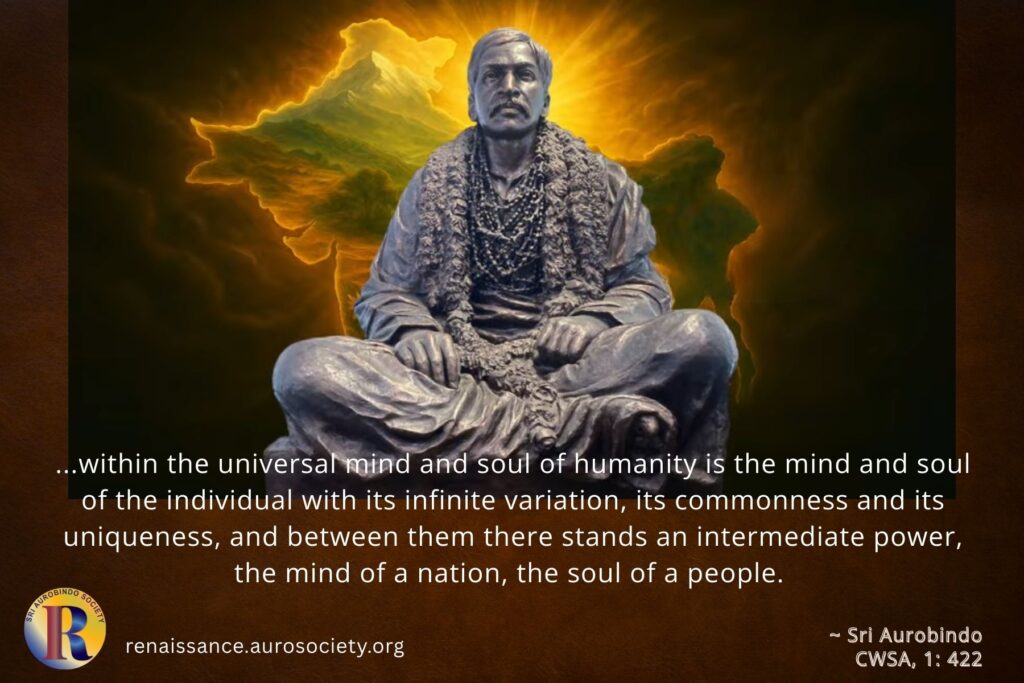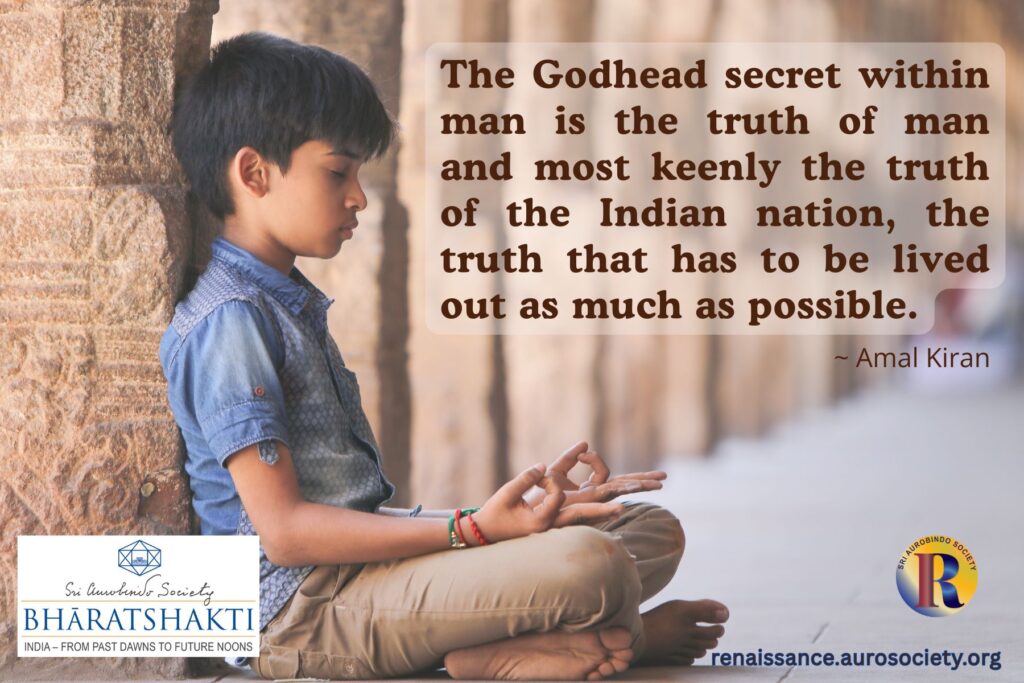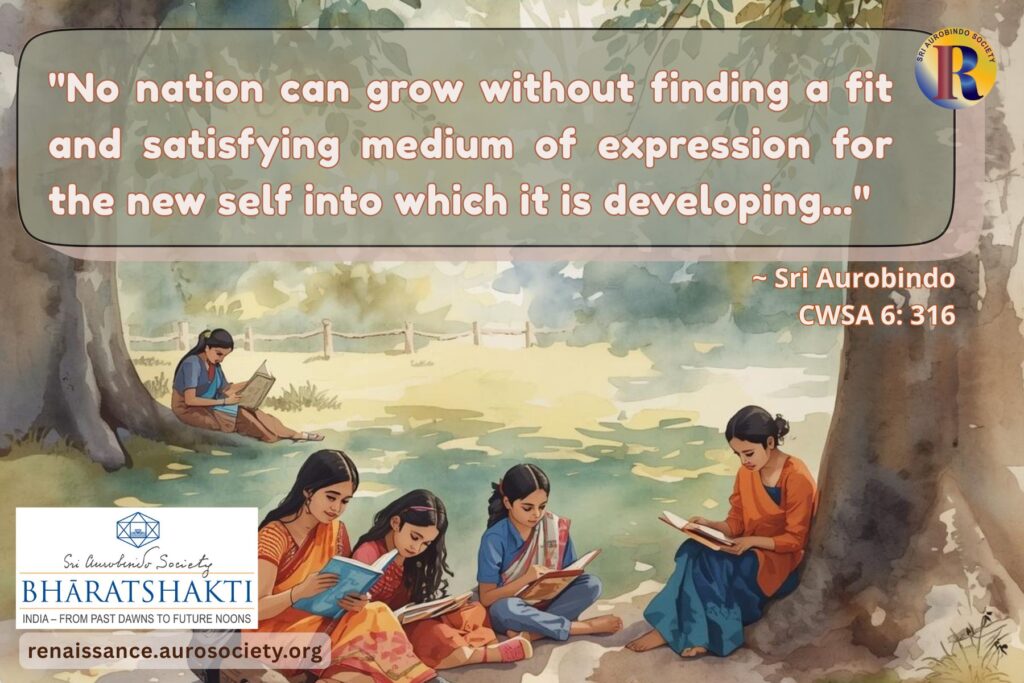Volume II, Issue 3
Author: K. D. Sethna (Amal Kiran)
Editor’s note: This three-part essay was first published on August 15, 1950 in Mother India. It presents a remarkable overview of various world-forces that were at play around the time of India’s independence, and highlights the significance of the date August 15, heralding a new direction for the world and humanity.
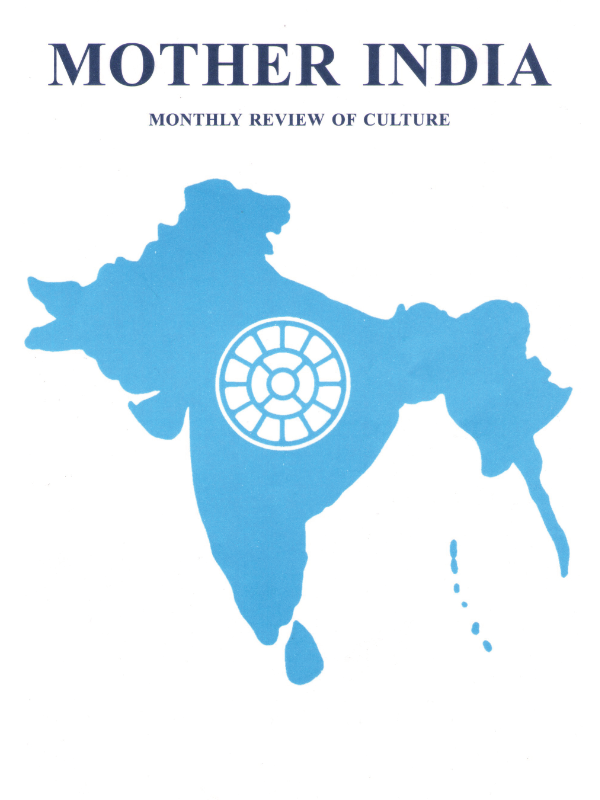
Editor’s note: This essay was first published on August 15, 1950 as an editorial in Mother India: Monthly Review of Culture, the journal of Sri Aurobindo Ashram. The first issue of the monthly journal came out on February 21, 1949; Amal Kiran (K. D. Sethna) was its founding-editor for more than 50 years.
Up until Sri Aurobindo’s physical withdrawal in December 1950, all the editorials and key articles, especially the ones dealing with political happenings or politics in general, were personally approved by Sri Aurobindo himself.
On one occasion, he spoke of Mother India as ‘his paper’. The present editorial was definitely seen and approved by Sri Aurobindo. We are presenting here some selections from the full essay in three parts.

PART 1
Pointers in Modern History
August 15, India’s Independence Day, has in modern history associations both spectacular and profound. We may say that this date marks the very birth of the power by which international politics was gigantically rocked into the manifold commotion that gave shape to our modern world.
For, though it is the French Revolution that brought modern history into being, the forces that exploded in 1789 could never have found a firm organised life if there had not arisen the military colossus we call Napoleon Bonaparte, gathering up the new France into a scourge of God and lashing out at the Europe united to crush her, and shattering the entire balance of the old world to the sound of the mighty mantra plucked from the heart of the Revolution—La Marseillaise. Through the personality of Napoleon revolutionary France let loose the spirit of modern times—Napoleon who was born on August 15 in 1769.
It is a far cry from this great Corsican to Hitler. But though Hitler cannot compare with him in stature and though he differs also in being an instrument of the dark forces of racialism and totalitarian tyranny rather than a medium, however flawed and self-willed, of liberty, equality and fraternity, he too precipitated a continent-wide clash of arms and was intensely influenced by the Napoleonic fury.
Not only did he start in 1941 his campaign against Russia in the name of Napoleon and on the very day Napoleon had marched against Tsar Alexander I; he also fixed in 1940 the 15th of August as the day on which he would complete his conquest of Western Europe by broadcasting from Buckingham Palace the collapse of Britain. The fall of Britain would have signed the death-warrant of the whole world outside America.
August 15 was meant to be the end of World War II, with a decisive victory of the forces intent on putting the clock back and establishing on earth the reign of the Asura, the Titan, over the evolving God in humanity. But instead of a resounding triumph, August 15 found Britain still full of fight and on that day the largest toll so far was taken of the Luftwaffe—180 German planes shot down in British skies! We might indeed designate it the turning-point in the Battle for Britain.

August 15 can also be considered the beginning of peace after World War II, though not the peace Hitler had intended to initiate on that day; for Japan surrendered on August 14, 1945.
And, seeing that peace once more was broken by North Korea’s invasion of the South and what was in appearance a civil war but really the first violent stroke by Communism in its plan of world-conquest burst on us and America undaunted by terrible disadvantages rushed into the carnage in order to save civilisation, we are led to ask whether again this date has a meaning.
To get the answer we do not have to search long. The hostilities were preluded in early June by a propaganda campaign by the North Korean radio, relayed by Moscow, demanding the unification of Korea on the Communists’ terms. The word “peaceful” was thrown about, but the suggestion was everywhere that peace hung on unconditional kowtowing by the Southern Government to the dictat of Communism.
On June 21 the same radio station spoke further of unification, ostensibly peaceful yet proceeding according to such a plan that within a certain fixed period the goal would inevitably be attained. There was an ominous ring here—and four days later the Communists were on the march across the 38th Parallel.
As usual, Communism had talked peace while intending war. But what attaches a peculiarly significant interest to the talk is the time-limit announced for the disappearance of the America-sponsored South Korean regime which, for all its imperfection, was yet democratic in essence. The exact words of the broadcast were: “All measures connected with the peaceful unification of our country shall be completely carried out by August 15 of this year.”
Yes, once more the day expected to be the beginning of the end of the democratic spirit on earth by armed might was August 15!

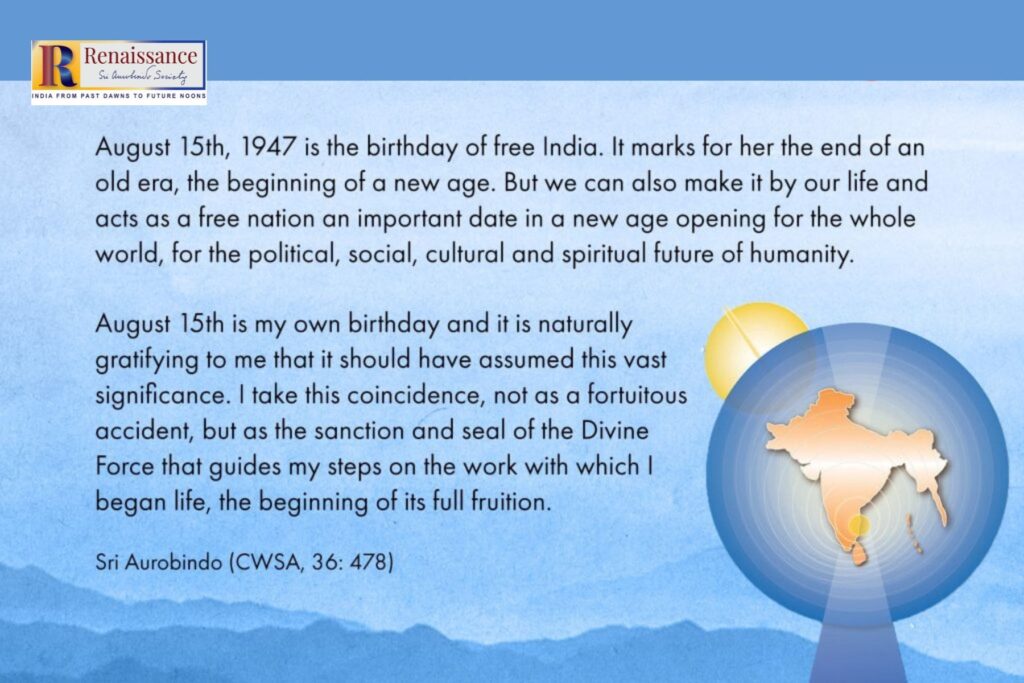

Continued in Part 2…
Don’t miss: Sri Aurobindo and August 15
Also see: Nation and Nationalism – Sri Aurobindo in Bande Mataram

~ Cover image: original image by Margaret Phanes; cover design by Rishabh Sharma
~ Other design: Beloo Mehra

